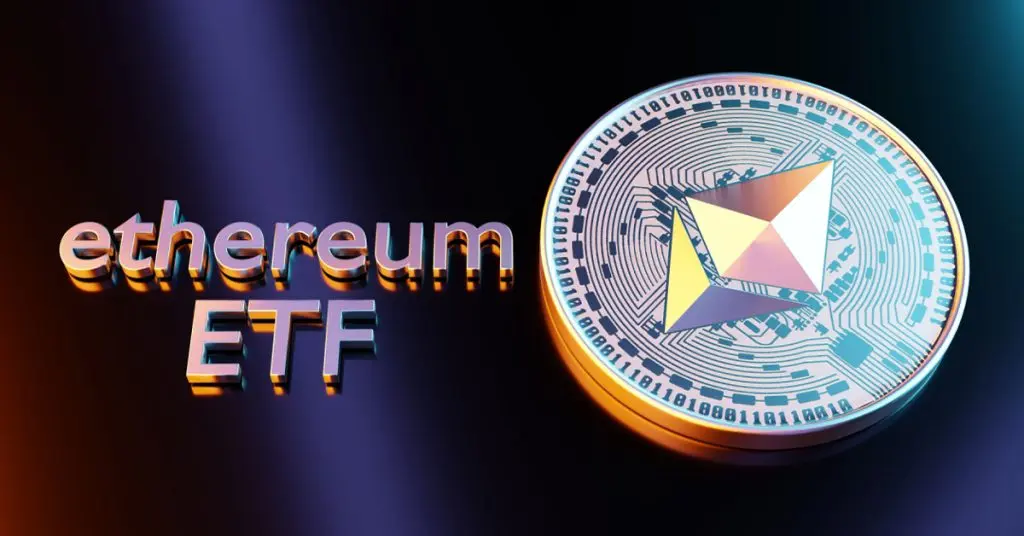
Introduction: The world of cryptocurrency and blockchain technology has been experiencing exponential growth, with Ethereum emerging as one of the leading platforms driving innovation. As investors seek exposure to this burgeoning market, the possibility of an Ethereum exchange-traded fund (ETF) has been a topic of significant interest. However, the regulatory landscape, particularly in the United States, has posed challenges for the approval of such financial products. In this article, we delve into the current status of the Ethereum ETF and explore whether the Securities and Exchange Commission (SEC) will approve it in the year 2024.
Background: Ethereum, the brainchild of Vitalik Buterin, has established itself as more than just a cryptocurrency. Its blockchain network enables the development of decentralized applications (DApps) and smart contracts, fostering a vibrant ecosystem of innovation across various industries. As Ethereum's prominence grows, so does investor interest in gaining exposure to its potential upside through traditional investment vehicles like ETFs.
The SEC, tasked with protecting investors and maintaining fair and orderly markets, plays a pivotal role in regulating financial products, including ETFs. Historically, the SEC has been cautious about approving cryptocurrency-related ETFs, citing concerns over market manipulation, liquidity, custody, and investor protection.
Current Status: As of early 2024, the SEC has yet to approve an Ethereum ETF. Despite numerous proposals and petitions from industry players, regulatory hurdles persist. The SEC's scrutiny of cryptocurrency ETFs stems from its mandate to ensure that such products meet the necessary regulatory standards and do not expose investors to undue risks.
Several factors contribute to the SEC's cautious approach:
-
Market Manipulation Concerns: Cryptocurrency markets are known for their volatility and susceptibility to manipulation. The SEC is wary of approving ETFs that could be vulnerable to market manipulation, potentially harming retail investors.
-
Custody and Security: Ensuring the safe custody of assets underlying an ETF is paramount. The SEC requires robust custody solutions to safeguard investors' funds against theft or loss. With Ethereum, the complexities of securely storing digital assets present unique challenges that must be addressed to satisfy regulatory requirements.
-
Market Liquidity: ETFs rely on liquid markets to facilitate trading and maintain price stability. The SEC assesses whether the underlying assets, in this case, Ethereum, have sufficient liquidity to support an ETF without significant price distortions or disruptions.
-
Regulatory Clarity: The evolving regulatory landscape surrounding cryptocurrencies adds another layer of complexity. The SEC seeks clarity on issues such as taxation, anti-money laundering (AML) compliance, and regulatory oversight before greenlighting Ethereum ETFs.
Prospects for 2024: While the SEC's stance on cryptocurrency ETFs remains cautious, there are indications of evolving sentiment within the regulatory body. The growing institutional adoption of cryptocurrencies, coupled with increasing demand from investors, may prompt the SEC to revisit its approach.
In recent years, the SEC has approved Bitcoin futures-based ETFs, signaling a degree of acceptance towards cryptocurrency-related investment products. However, Ethereum ETFs present unique challenges due to Ethereum's different technological architecture and use cases compared to Bitcoin.
In 2024, the SEC may continue to engage with stakeholders, including asset managers, exchanges, and industry experts, to address concerns and explore potential solutions. Regulatory developments, such as the establishment of clearer guidelines for digital asset custody and trading, could pave the way for Ethereum ETF approvals.
Additionally, ongoing efforts to enhance transparency, investor education, and market surveillance may bolster the case for Ethereum ETFs by mitigating regulatory concerns.
Conclusion: The approval of an Ethereum ETF by the SEC in 2024 remains uncertain, but not entirely out of reach. While regulatory hurdles persist, evolving market dynamics and increasing institutional participation may tip the scales in favor of such investment products.
Investors and industry stakeholders eagerly await the SEC's decision, which will not only shape the accessibility of Ethereum to mainstream investors but also serve as a litmus test for the broader acceptance of cryptocurrencies within traditional financial markets. Until then, the fate of the Ethereum ETF hangs in the balance, subject to the regulatory scrutiny and evolving dynamics of the cryptocurrency landscape.
